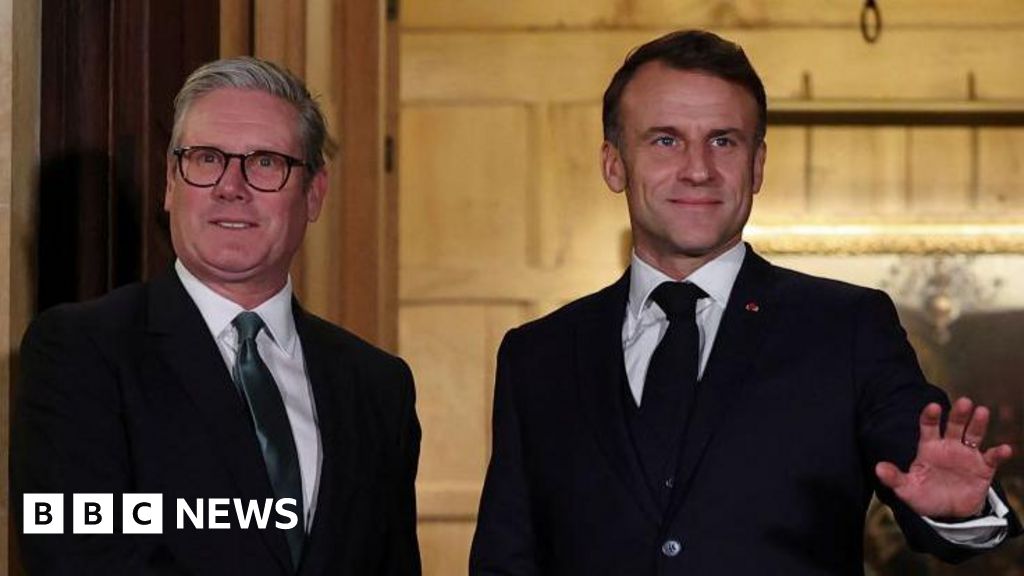
European Leaders to Convene for Urgent Summit on Ukraine Conflict
By Joe Pike, Political and Investigations Correspondent
In light of escalating tensions regarding the war in Ukraine, European leaders are preparing for an emergency summit next week. This gathering comes amid fears that the United States may be advancing peace discussions with Russia that could marginalize the European perspective.
Sir Keir Starmer, the British Prime Minister, is anticipated to attend the Paris summit and has emphasized the importance of this moment, referring to it as a "once-in-a-generation opportunity for our national security." He asserted that Europe must enhance its role within NATO given the current geopolitical landscape.
The urgency of the summit follows remarks from Donald Trump’s special envoy to Ukraine, who indicated that while European leaders would be consulted, they would not be directly involved in U.S.-Russia negotiations aimed at resolving the conflict.
Additionally, senior officials from the White House are slated to meet with both Russian and Ukrainian representatives in Saudi Arabia in the upcoming days, as reported by U.S. authorities.
Amidst these developments, Keith Kellogg, the special envoy, suggested that past negotiations faltered due to excessive involvement from various parties. He expressed candidly, “It may be like chalk on the blackboard, it may grate a little bit, but I am telling you something that is really quite honest.”
Sir Keir aims to unify U.S. and European strategies in pursuit of peace in Ukraine. He is set to share insights from European leaders when he meets President Trump at the White House later this month. A subsequent meeting involving European leaders and Ukrainian President Volodymyr Zelensky is also planned following Sir Keir’s return from Washington.
The UK Prime Minister expressed a commitment to fostering cooperation between the U.S. and Europe, asserting that it is crucial to prevent any rifts within the alliance that might distract from confronting external threats. “This represents a once-in-a-generation moment for our national security as we confront the reality of today’s world and the risks posed by Russia,” he stated. He advocates for Europe to adopt a more prominent role in NATO, collaborating with the United States to ensure Ukraine’s stability amidst the ongoing crisis.
Polish Foreign Minister Radoslaw Sikorski noted that President Macron of France had instigated the upcoming summit of European leaders, although an official announcement from the French president is still pending. Sikorski highlighted that Trump’s strategic approach could be characterized as "reconnaissance through battle," suggesting that responses should adapt dynamically to Russia’s actions.
Earlier on Saturday, President Zelensky urged for the establishment of an "army of Europe" given growing apprehensions about whether the U.S. would continue to offer support to the continent. Addressing the Munich Security Conference, he underscored the changing dynamics in European-American relations and insisted that Ukraine would reject any agreements made without its direct participation, particularly following Trump and Putin’s decision to initiate peace talks.
Recently, Trump disclosed that he and Putin had engaged in a significant conversation, with plans for negotiations to commence "immediately" to bring an end to what he termed the "ridiculous war" in Ukraine.
On the same day, U.S. Secretary of State Marco Rubio had a phone conversation with Russia’s Foreign Minister, further building on the discussions initiated between Trump and Putin earlier in the week.
In another development, U.S. Representative Michael McCaul confirmed that Zelensky had received an invitation to partake in peace talks in Saudi Arabia, aimed at facilitating a meeting involving Trump, Putin, and the Ukrainian president with the goal of finally establishing peace.
During the Munich Security Conference, Vice President JD Vance criticized European democracies, labeling their internal issues as the most significant threat facing the continent, rather than external factors like Russia and China. He reiterated the necessity for Europe to significantly bolster its defense capabilities.
Contributing to the dialogue, UK Foreign Secretary David Lammy highlighted the importance of increased defense spending, noting that even if a peace agreement is reached regarding Ukraine, Europe must still confront an "existential question." He recognized that while 23 NATO countries have increased their defense budgets to a minimum of 2% of GDP, further enhancements are essential for ensuring regional security in the face of ongoing challenges.









